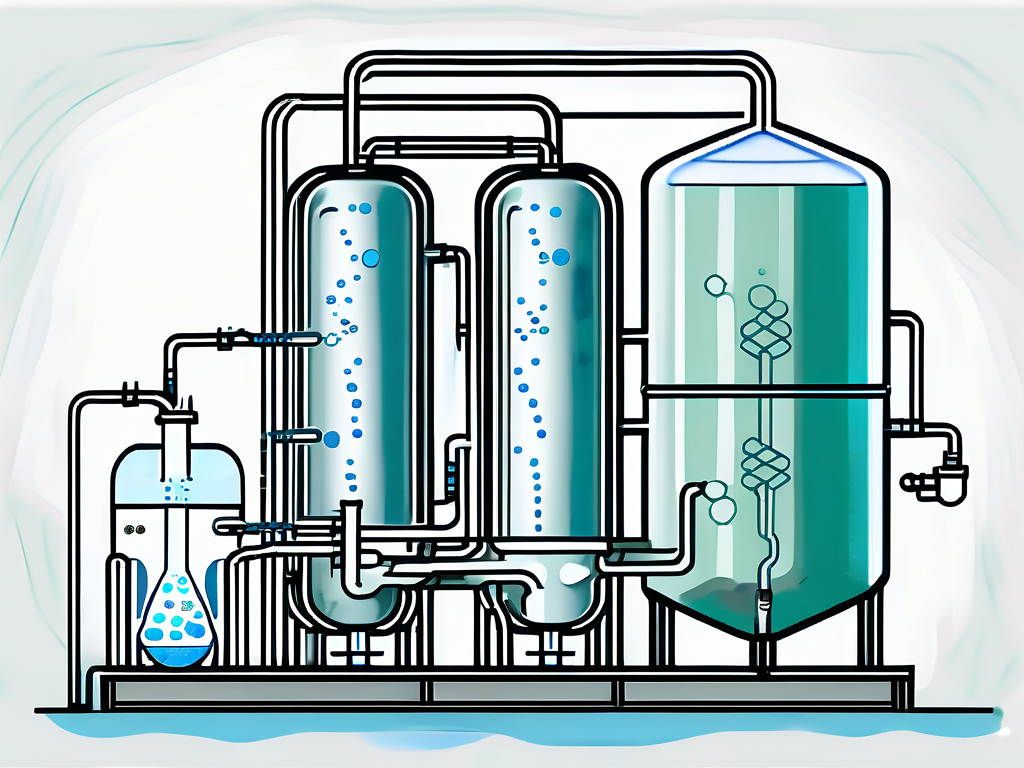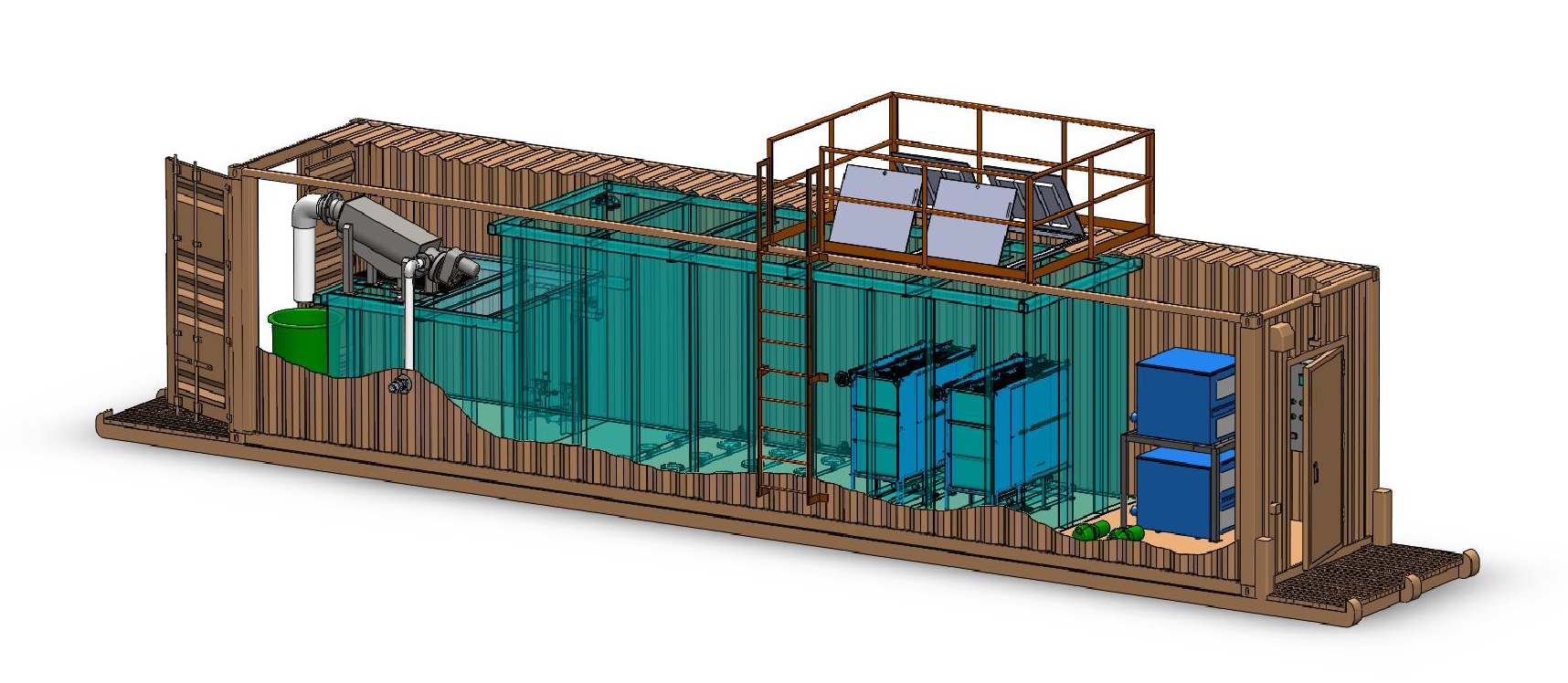Membrane Bioreactor as a Sustainable Solution for High-Volume Wastewater Treatment
Membrane Bioreactor as a Sustainable Solution for High-Volume Wastewater Treatment
Blog Article
Exactly How Membrane Layer Bioreactors Are Transforming Water Filtration Solutions
The emergence of membrane bioreactors (MBRs) stands for a considerable innovation in the field of water filtration, merging biological therapy procedures with innovative membrane layer filtration modern technologies. This integration not just boosts the quality of dealt with effluent yet also addresses metropolitan room restrictions, making MBRs specifically suitable for densely inhabited locations. As global water shortage intensifies, the function of MBRs in assisting in potable water reuse and sustainable water administration comes to be increasingly crucial. The implications of this technology extend beyond effectiveness-- what obstacles and possibilities exist in advance for its widespread implementation?
Introduction of Membrane Bioreactors
Membrane bioreactors (MBRs) stand for a substantial improvement in water purification technology, as they combine organic therapy processes with membrane purification. This combination improves the efficiency of wastewater therapy by making use of bacteria to degrade natural contaminants while concurrently employing semi-permeable membrane layers to different treated water from put on hold pathogens and solids.
The MBR system typically includes a biological activator where the microbial population metabolizes contaminants, adhered to by a membrane layer filtering device that maintains biomass and allows just clean water to pass through. This double functionality causes higher effluent top quality compared to standard treatment approaches. MBRs can be operated in both set and constant circulation modes, supplying versatility in layout and application.
They additionally enable the recovery of water for reuse, therefore adding to water sustainability campaigns. Overall, MBRs are at the leading edge of enhancing water therapy performance and top quality, showcasing the potential for innovative services in environmental administration.
Benefits of MBR Modern Technology
The assimilation of organic therapy with membrane layer filtration offers various advantages for water purification processes. One of the primary benefits of Membrane Bioreactor (MBR) technology is its ability to efficiently eliminate both inorganic and organic contaminants, leading to top quality effluent. The membranes act as a physical barrier, protecting against put on hold solids and pathogens from passing through, which enhances the general safety and reliability of treated water.
Additionally, MBR systems require a smaller footprint compared to traditional treatment approaches, allowing for much more effective area utilization. This portable layout is particularly beneficial in urban settings where land is restricted. MBRs also show operational flexibility, fitting varying influent high qualities and flow rates without considerable efficiency degradation.
Moreover, the procedure provides boosted nutrient removal capabilities, specifically for nitrogen and phosphorus, which are important for avoiding eutrophication in getting waters. The decreased sludge production connected with MBR innovation additionally equates to lower disposal prices, making it an affordable service in the future - Membrane Bioreactor. In general, the advantages of MBR technology placement it as a leading selection for lasting and cutting-edge water filtration systems, resolving both environmental and financial problems
Applications in Water Filtration
Applications of Membrane Layer Bioreactor (MBR) technology in water filtration are diverse and impactful, resolving numerous therapy needs across multiple markets. MBRs efficiently incorporate biological therapy processes with membrane layer filtration, making them suitable for metropolitan wastewater therapy, industrial effluent administration, and even potable water reuse campaigns.
In local setups, MBRs are increasingly used to improve the high quality of dealt with wastewater, enabling compliance with strict discharge guidelines and facilitating the recycling of water for watering and non-potable usages. Their compact design likewise makes them ideal for urban environments where room is more tips here limited.
Industrially, MBR modern technology is utilized to treat process water and wastewater, particularly in markets such as food and beverage, drugs, and textiles. By successfully eliminating impurities and put on hold solids, MBRs aid sectors minimize ecological influences while recovering valuable sources from this hyperlink wastewater streams.
In Addition, MBRs are obtaining grip in decentralized water therapy applications, where small systems can be released in remote locations or creating areas. This flexibility allows communities to achieve sustainable water management services, improving access to clean water while reducing reliance on conventional therapy techniques.
Study and Success Stories

In one more instance, a textile manufacturing facility in Bangladesh embraced MBR innovation to address its wastewater challenges. The system reduced chemical oxygen demand (COD) levels from 1,200 mg/L to less than 100 mg/L, hence meeting governing standards and dramatically decreasing ecological effect.
The College of Cape Community's MBR installment has proven efficient in dealing with greywater for non-potable reuse on campus. This job not only preserves safe and clean water yet also functions as an educational version for sustainable practices.
Furthermore, a fish and shellfish handling plant in Norway made use of MBR innovation to treat effluents consisting of high levels of natural matter, accomplishing over 90% toxin removal. These situation research studies emphasize MBR innovation's versatility and its essential duty in enhancing water high quality throughout diverse applications.
Future of Water Treatment Solutions
As international water scarcity and air pollution obstacles escalate, cutting-edge water treatment solutions are coming to be progressively necessary to guarantee sustainable access to clean water. The future of water therapy lies in the combination of innovative modern technologies that enhance the effectiveness and performance of filtration processes. Membrane layer bioreactors (MBRs) go to the forefront of this advancement, combining biological therapy with membrane layer purification to create high-quality effluent suitable for different applications.

Emerging patterns such as source recuperation from wastewater, consisting of nutrients and energy, will certainly further change therapy centers right into environmentally friendly hubs. In addition, improvements in nanotechnology and membrane materials guarantee improved performance and long life of purification systems.

Verdict
Finally, membrane bioreactors stand for a significant innovation in water purification technologies, successfully combining organic treatment with innovative membrane purification. The various benefits, including boosted effluent high quality and lowered spatial demands, make MBRs specifically appropriate for city applications. Their role in safe and clean water reuse and sustainable water administration highlights their importance in attending to global water shortage difficulties. Proceeded r & d will additionally boost the efficacy and fostering of MBR modern technology, guaranteeing a resistant future for water therapy services.
The introduction of membrane layer bioreactors (MBRs) stands for a substantial advancement in the field of water purification, merging biological treatment processes with advanced membrane filtering innovations. As international water deficiency magnifies, the function of MBRs in helping with drinkable water reuse and sustainable water administration ends up being progressively vital. They likewise allow the healing of water for reuse, therefore contributing to water sustainability initiatives.As global water scarcity and pollution challenges intensify, innovative water therapy remedies are coming to be progressively necessary to make sure lasting access to clean water. Their role in safe and clean water reuse and lasting water administration highlights their significance in dealing with global water deficiency obstacles.
Report this page